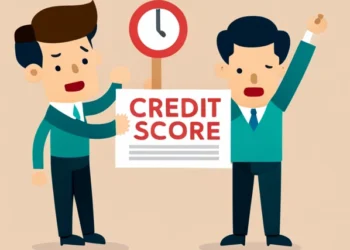Table of Contents
1. Introduction
Budgeting is the key to financial freedom. The purpose of budgeting is to ensure that you are spending less than you make, and are putting money towards savings, debts, and investments. In this blog article, we will cover the common budgeting mistakes to avoid, the key components of effective budgeting, and easy steps to help you create and manage a successful budget.
The Importance of Budgeting for Financial Freedom
Budgeting is important because it helps you plan and track your finances. With a budget, you can:
- Identify areas where you are overspending
- Track your progress towards your financial goals
- Build a strong financial foundation
- Prepare for unexpected expenses
- Reduce financial stress
2. The Common Budgeting Mistakes to Avoid
Many people make common budgeting mistakes, such as:
- Not tracking expenses
- Not creating a realistic budget
- Ignoring debt
- Splurging on unnecessary items
By avoiding these mistakes, you can create a successful budget that works for you.
3. Key Components of Effective Budgeting
The key components of effective budgeting are:
- Assessing your financial situation
- Creating your budget
- Tracking your expenses
- Reducing your expenses
- Managing your debts
- Building your savings
- Investing for your future
- Staying on track
4. Assessing Your Financial Situation
Calculate Your Income
To assess your financial situation, you need to know how much money you make each month. Calculate your income by adding up all sources of monthly income.
Identify Your Expenses
Identify all of your monthly expenses, such as rent/mortgage, utilities, groceries, transportation, and entertainment. Once you have identified your expenses, categorize them to get a clearer picture of where your money is going.
Identify Your Debts
Identify all of your debts, such as student loans, car loans, and credit card debt. Knowing the total amount of debt you have can help you prioritize which debts to pay off first.
Determine Your Net Worth
To determine your net worth, subtract your total debts from your total assets. This will give you an overview of your financial health.
5. Creating Your Budget
Start with a Realistic Income Estimate
Start by creating a budget with a realistic income estimate. Be conservative in your estimate to avoid overestimating your income.
Create Goals for Savings, Investments, and Debts
Set specific financial goals for savings, investments, and debts. Be realistic when setting these goals, and aim to pay off high-interest debts first.
Allocate Your Expenses into Categories
Categorize your expenses into groups such as housing, transportation, food, and entertainment. This will help you identify where you can cut back.
Determine How Much You Can Spend on Each Category
Use your income estimate and expense categories to determine how much you can spend on each category. Be sure to set limits that you can realistically stick to.
Use a Budgeting Tool
Use a budgeting tool, such as an online budgeting app or spreadsheet, to help you manage your budget effectively.
6. Tracking Your Expenses
Track Your Spending Habits
Keep track of all of your spending habits, such as cash, credit, and debit transactions. This will help you identify areas where you may be overspending.
Keep Receipts and Record Transactions
Keep all receipts and record transactions in a spreadsheet or budgeting app. This will make it easier to track your expenses and create a more accurate budget.
Monitor Your Monthly Bills
Keep track of when your bills are due, and make sure you have enough money to cover them. Late fees can add up quickly and hurt your budget.
Review Your Budget Regularly
Review your budget regularly to ensure that you are staying on track. Adjust your budget as necessary to accommodate changes in income or expenses.
7. Reducing Your Expenses
Eliminate Unnecessary Expenses
Identify unnecessary expenses, such as cable subscriptions or eating out, and eliminate them. This will free up money that can be put towards savings or debt repayment.
Cut Back on Non-Essential Services and Subscriptions
Cut back on non-essential services and subscriptions, such as gym memberships or magazine subscriptions, to save money.
Shop Smarter
Shop smarter by using coupons, buying generic brands, and comparing prices. This can save you money on groceries and other items.
Find Ways to Reduce Energy Costs
Find ways to reduce energy costs, such as turning off lights and appliances when not in use, and lowering the thermostat. Small changes can add up to significant savings.
8. Managing Your Debts
Prioritize Your Debts
Prioritize your debts by paying off high-interest debts first. This will save you money in the long run and free up more money for savings or other expenses.
Choose a Repayment Plan
Choose a debt repayment plan that works for you, such as the debt snowball or the debt avalanche method.
Negotiate with Creditors
Negotiate with creditors to lower interest rates or to set up a payment plan that works for you.
Consider Consolidation
Consider consolidating higher interest debts into a lower interest loan. This can make it easier to manage monthly payments and save money on interest.
9. Building Your Savings
Establish an Emergency Fund
Establish an emergency fund to cover unexpected expenses, such as car repairs or medical bills. Aim to save three to six months’ worth of living expenses.
Save for Short-Term and Long-Term Goals
Set aside money for short-term goals, such as a vacation or a new car, and long-term goals, such as retirement or a down payment on a house.
Consider Automatic Savings Plans
Consider setting up automatic savings plans to make saving money easier. This can help you save money that you may have otherwise spent.
Look for High-Yield Accounts
Look for high-yield savings accounts or investment accounts to earn the most interest on your savings.
10. Investing for Your Future
Learn the Basics of Investing
Learn the basics of investing, such as diversification, risk tolerance, and asset allocation. This can help you make informed investment decisions.
Create a Diversified Portfolio
Create a diversified portfolio with a mix of stocks, bonds, and other investments. This can help reduce risk and maximize returns.
Start with Low-Risk Investments
Start with low-risk investments, such as index funds or mutual funds, before moving on to riskier investments.
Seek Professional Advice
Consider seeking professional advice from a financial advisor to help you make informed investment decisions.
11. Staying on Track
Set Reminders and Alerts
Set reminders and alerts to keep you accountable and on track with your budget.
Stay Motivated
Stay motivated by regularly reviewing your progress towards your financial goals.
Find Support and Accountability Partners
Find support and accountability partners, such as friends or family members, to help you stay motivated and on track.
Celebrate Your Progress
Celebrate your progress towards your financial goals, no matter how small. This will help you stay motivated and focused on your budgeting journey.
12. Frequently Asked Questions
How Long Does it Take to Budget Effectively?
It can take a few months to get into the habit of budgeting effectively. However, with practice and consistency, budgeting can become a natural part of your financial routine.
How Do I Deal With Unexpected Expenses?
Make sure to have an emergency fund set up for unexpected expenses. If an emergency does arise, adjust your budget as necessary to accommodate the extra expense.
What if I Don’t Have Enough Income to Cover My Expenses?
If you don’t have enough income to cover your expenses, consider finding ways to increase your income or finding ways to reduce your expenses. A financial advisor can also help you create a realistic budget based on your current income.
Can I Splurge on Something I Really Want?
Yes, you can splurge on something you really want, as long as it fits within your budget. Just be sure to adjust your budget accordingly to compensate for the expense.
Conclusion
Budgeting is the key to financial freedom. By following these easy steps and avoiding common budgeting mistakes, you can create a successful budget that works for you. Remember to stay motivated, track your progress, and adjust your budget as necessary to achieve your financial goals. Start budgeting today, and take the first step towards a brighter financial future.




